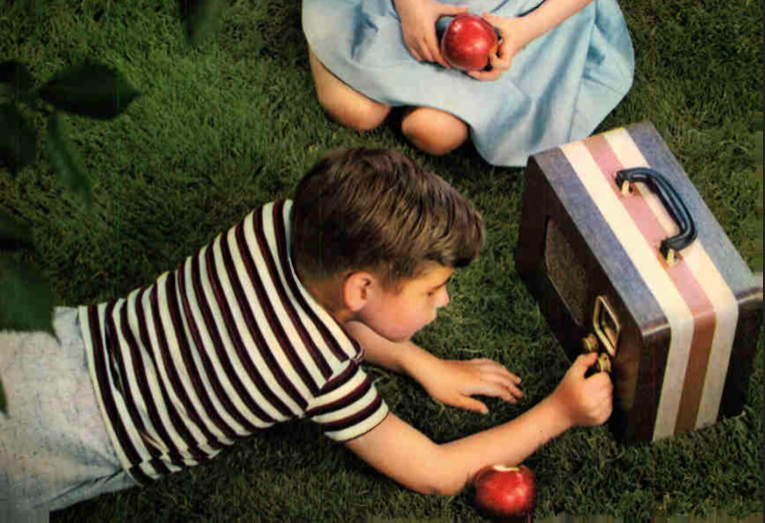
Today’s radio waves feature four stupendous releases from reliably melodic rockers that take up the mission from different strengths. Get ready to do some involuntary humming along.
I was definitely late to the Cast party, only showing up in 2016. But I quickly became a die-hard fan of their canon. There was something shivery good about John Power’s haunting vocals while the band’s musical vibe seemed to deliver on what The La’s had only promised. The band did pop up with a new album in 2017 but Kicking Up Dust sounded more like a Power solo album but for the very Cast-alicious “Baby Blue Eyes.” This time round though I’m in on the ground floor with their brand new LP Love Is the Call and I can report it is a concentrated blast of everything that once made Cast so exciting. The songs here are strong, really sing-along good. John Power has clearly got his song-writing mojo back and then some. As Cast fans might expect, the acoustic guitar features strongly in a few songs here, like “Bluebird” and “Tomorrow Call My Name.” Seductive vocal arrangements also get a look in on the cathedral haunting “First Smile Ever.” But that won’t prepare you for the stunning hooks of should-be hits like “The Rain That Falls” and “Faraway.” “Love You Like I Do” and “Love Is the Call” up the rock quotient but without moving the melody needle any distance from superb. Trust me on this one, Love is the Call is the one you’ll really want to take.
Rich Arithmetic is like a painter who colours his songs with shades of musical yesteryear. And his new album Pushbutton Romance offers a wide variety of sonic hues: new wave, jangle, baroque, and a whole load of sixties vibes. “When You Want Somebody (To Make Love To)” starts things off strong, vibing early 1980s retro with just a touch psychedelia in the vocals. The distinctive guitar riffing throughout really buffets the tune. Then “Carry You (Redux)” steps on the jangle pedal and harmony vocals to good effect. Really, the guitar tones and vocal arrangements on this record are something else. Listen to how “Battered and Broke” uses some jazzy guitar to set a different pace from the rest of the album, more American songbook as a contribution. Or there’s the fab rumble guitar giving the instrumental “Saving Sunset” a cool Shadowy Men on Shadowy Planet strut. For vocals “Moral Blight” lays on some pretty sweet harmonies that really launch the tune in the chorus while in “You Are Always Right” it is the vocal arrangement that really shines, beautifully supported by some distinctive jangle and rumbly guitar work. The tune sounds Mersey but like the non-mop top bands. Other highlights for me include the folk rock “Bend the Arc” and Beach Boys-ish “A Teenage Hymn, Pt. 1: Tan All Over.”
If there was a godfather of power pop it might be Paul Collins. Member of the legendary Nerves with Jack Lee and Peter Case in the late 1970s, later making waves with his own Paul Collins Beat throughout the 1980s, Collins always seemed to be just this side of making it. But like the Velvet Underground, everyone who caught his act started their own power pop band. On his brand new record Stand Back and Take a Good Look Collins has decided to revisit a range of songs from his many bands and solo records, with help from the likes of Dwight Twilley, Prairie Prince, Richard X Heyman, and many others. The results are a rollicking good time. Opening cut and title track “Stand Back and Take a Good Look” puts the Nerves song into a swinging, easygoing register. “In Another World” strips the Americana coating off a track initially covered by the more country-ish Paul Collins Band – and I like it. Some songs hit the jangle just so, like “Liverpool.” Others slip into a more country feel, as on “You Can’t Go Back.” All in all, 67 year old Collins sounds in fine form here. Tracks like “I’m the Only One For You” sound as fresh and full of energy as anything from his deep catalogue.
On What Happened to the Beach? kid wunderkind Declan McKenna stretches his musical range, offering up dance, power pop, English folk, and efforts the defy easy categorization. There is a Bowie-esque sense of daring and curiosity to what is going on here. Yet amidst all this adventure and experimentation the results are always recognizably Declan. “Wobble” showcases this playfulness, with a McCartney-worthy falsetto and a carefully staged, sometimes overlapping introduction of different sonic tones. “Elevator Hum” is another interesting collage of sounds, sparse and airy, then building to a dance floor groove. “I Write the News” nails the 1970s English folkie vibe of John Martyn and Roy Harper before it scales up into something else completely. But the heart of the album for me is the set of radio-ready singles, “Sympathy” and “Nothing Works.” Both are just fabulous instances of melodic single-age, masterfully put together. Given all this variety, it’s clear Declan’s not done exploring yet.
What a quartet for your listening pleasure. Don’t be afraid to dig deep and often into these releases. Repeated listenings are the charm.

Listened to the Cast album; that is really top-notch stuff. Thanks for the tip!
LikeLiked by 1 person
I’d never heard of Cast, but this new album is really great. Thanks for the suggestion.
LikeLiked by 1 person
You’re going to love their back catalogue!
LikeLike
I like all your choices Dennis, but my favorite is Declan McKenna, who I’ve liked ever since hearing his song “Brazil”. And once again, I must gush about what a great writer you are!
LikeLiked by 1 person